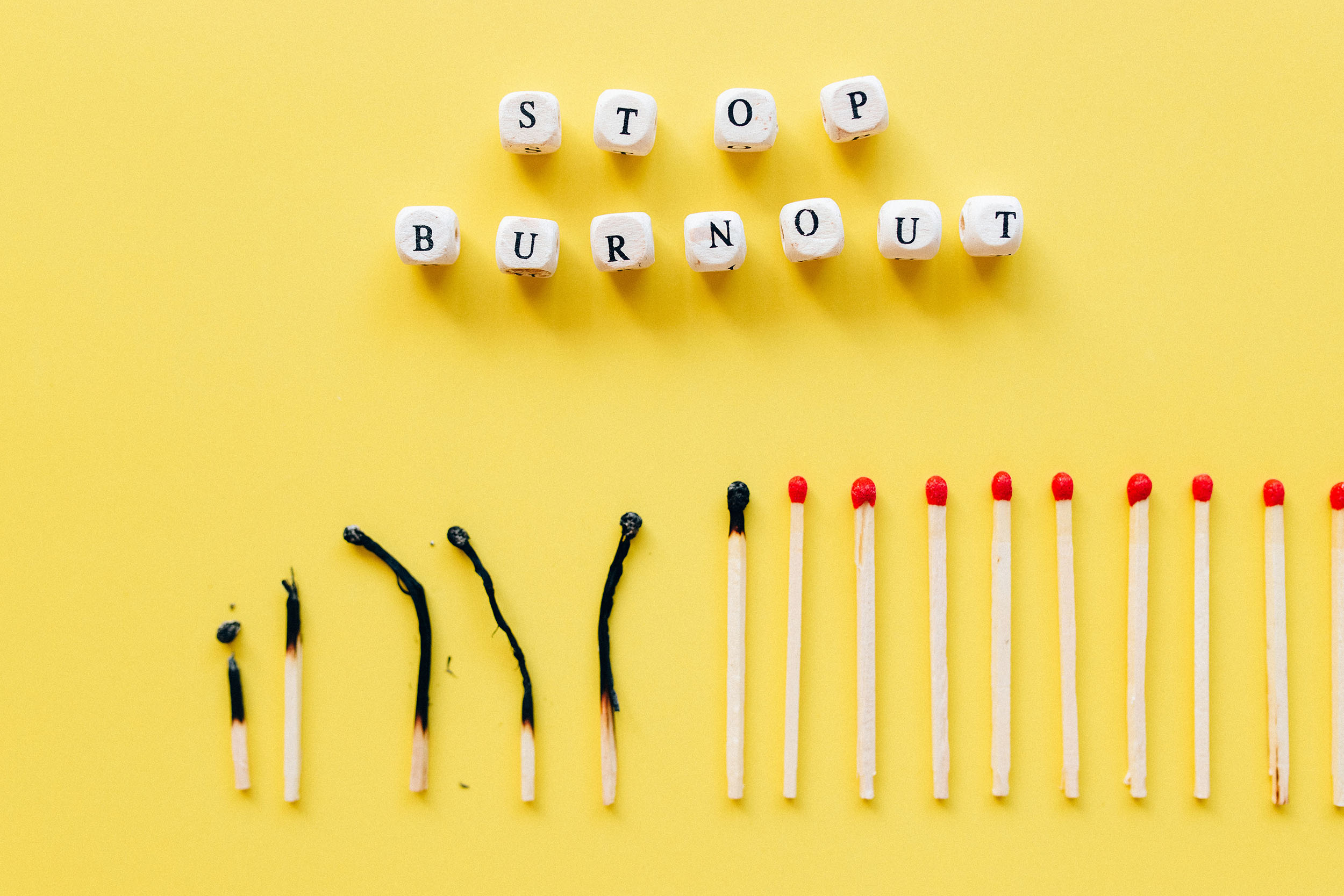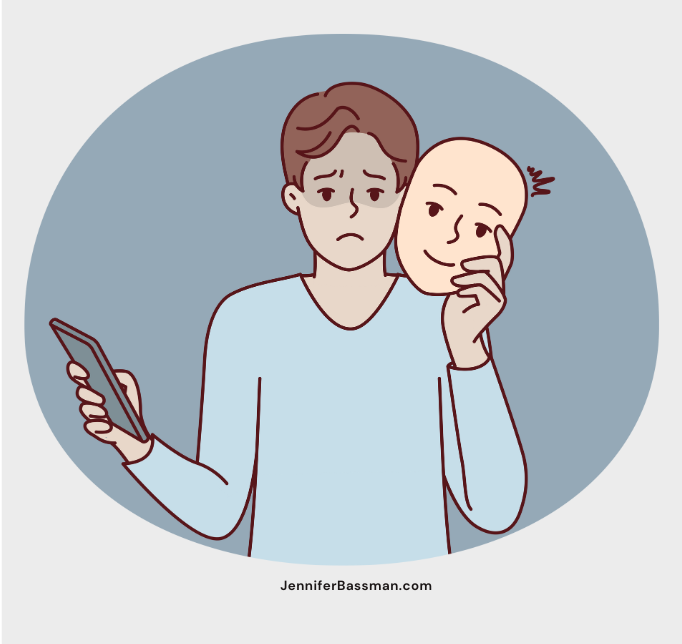Updated: January 23, 2024
Original Post: February 18, 2021
These are the top 10 work burnout myths that I commonly hear and far too many people still believe. I want to dispel these myths because they could be costing you time, energy, and money.
There is a lot more information about burnout and chronic stress than when I began this adventure 15 years ago.
But, it’s not all good or true. (Hey! It’s the internet, so no one is surprised, right?)
Best part? I have included a Burnout Quiz and I know we all love quizzes!
Myth #1: You don’t think you’re that burned out or overwhelmed.
Can I be honest? You’re reading about work burnout, so something is going on.
You and I have different thresholds when it comes to stress. What I see as stressful, you may not. What you see as stressful or overwhelming, I may not see the same way.
When your life feels like a pressure cooker, that’s a sign that you are under stress.
Here’s my stress threshold question for clients: Are you sleeping at night? If you’re not sleeping well, it’s usually one of the first signs there is too much stress in your life. If you have experienced chronic stress for longer than a month or two, you may be on the path to burning out.
We all experience “busy periods” or temporary periods of unusually high stress. However, if that stress doesn’t resolve or you go from one stressful situation to another – it’s time to figure out a way to decompress.
You can also take my Burnout Quiz to find out if you are burned out. (Who doesn’t love a good quiz?)
Myth #2: It’s too hard to figure out why you’re burned out.
Many people stop at surface-level symptoms of stress and burnout. However, there is usually something deeper going on that is contributing to chronic stress and burnout. For example, habits like people pleasing and perfectionism.
If you don’t get to the root cause of your burnout, you will waste a lot of time on the wrong solutions for the wrong problem.
When I was initially recovering from burnout, I thought my chronic stress was from overwork. So, I cut back my hours and delegated some work. That didn’t really seem to help because it felt like something was still bothering me.
Something I didn’t know about myself: I am a people pleaser and perfectionist. Discovering this about myself allowed me find solutions that actually corrected the problems these habits were causing me. For example, my perfectionism was driven by unrealistic expectations of myself and others. Realigning my expectations decreased my stress levels tremendously and I found it easier to let go of work that wasn’t a fit for me or I didn’t enjoy doing.
One of the most efficient ways to get to the root cause of your burnout is to take a CliftonStrengths assessment. This assessment tells you where your natural talents lie. What a lot of us discover is that we are not working in our zone of genius or doing what we are best at. When you aren’t doing what you do best, you do get stressed out and burn out because you aren’t satisfied and happy.
Once you know what problems need to be fixed, it’s a lot easier to hone in on the right solution. Work burnout myth solved!
Myth #3: Burnout is a sign of failure.
Burnout is not something to be ashamed of, nor is it a sign of failure. These are actually beliefs rooted in The Hustle Culture that surrounds most of us. (So many work burnout myths come from this.)
When I first realized I was burned out, I confided in a fellow business owner about my struggle. This business owner told me to keep my burnout and stress fears to myself because it is important to appear strong and confident when you own a business.
Burnout is actually a signal that it is time for change and growth.
As we gain more experience and knowledge, often our mindset and habits don’t update. They remain rooted in a different time when you were a different person with different needs or even life.
Making the transition from employee to business was difficult because I had to think different and my responsibilities had changed. Yet, I was still operating like an employee, not learning how to manage my time and responsibilities in a way that allowed me to keep up. So, I struggled for years managing my time and responsibilities – which led to me experiencing a lot of stress because I was so overwhelmed all of the time.
Myth #4: Burnout is part of being an entrepreneur/small business owner/solopreneur/leader.
Again, the freakin’ Hustle Culture. I used to believe this one, too. (This is probably my least favorite work burnout myth.)
Yes, owning and running a business will be stressful, but chronic stress and overwhelm are not normal.
What is normal is asking for help, delegating work, hiring competent employees and firing the incompetent ones, not trying to be everything to everyone, and not having all of the answers.
It’s like we’re supposed to be these mythical gurus that know and do all. (We’re not.)
You’re human. You make mistakes and you need time off and breaks, too. Sometimes you just need to tell people to buzz off.
Myth #5: Self-care cures burnout.
When I was initially going through burnout, the best (and most common) recovery advice I could find: get some sleep, take a vacation, lessen your workload, and hire some help.
It was very frustrating because none of those things worked without getting to the root of my burnout.
When you don’t know what specifically is burning you out, the solutions you try will all be temporary band aids.
Getting more quality sleep, taking a break, and lessening your workload do matter in the burnout recovery process. However, what no one else will tell you: you need to know why you are burning out and get to the root of your burnout so you can extinguish what is continuing to cause you problems. Otherwise, burnout will just keep happening. See Mistake #2.
Myth #6: It’s normal to feel constantly overwhelmed.
We live in a “busy culture” that prides itself on wearing stress like a badge of honor. Honestly, though, this stress is not good for any of us and thinking that it’s something to be proud of is unhealthy.
We all go through periods of time when we are busier than usual. That is totally normal. When you chronically overschedule or overcommit to work, that’s a problem.
Your schedule should be a mixture of high and low periods of activity. But, if you are constantly feeling overwhelmed for long periods of time with no rest in sight – it’s time to reevaluate your workload and responsibilities.
Myth #7: You lack boundaries due to guilt or fear upsetting others.
The first time I told a client that I would not accommodate an after-hours call, I sweated profusely and feared it would close my business down. No such thing happened. They said they understood and thought they would just ask. They didn’t expect me to accommodate them. Truth: most people don’t.
While people don’t love to hear no, they do expect it. And, if they can’t handle you turning them down – they aren’t your person. You are entitled to have clear boundaries that you enforce professionally and personally. You should say no to work that doesn’t align with your priorities and goals.
You can’t control other people’s reactions, but you can control your own and make sure your needs are being met.
If you would like help learning how to create effective boundaries, check out my book, Stop Being A Doormat.
Myth #8: There’s no effective way to recover from burnout.
What prevents many from recovering is being honest with themselves about themselves.
You don’t want to believe that it is something you are doing that is causing you stress. So, you look for external reasons to blame. Sure, your job may be stressful or you deal with a lot of difficult people. But, at the end of the day, it’s possible that there are a variety of mindset issues, limiting beliefs, and habits that are contributing to your chronic stress.
But, but, but… When you are chronically stressed and burned out you feel trapped. And you feel trapped because stress has taken over your brain and it’s ability to problem-solve and make decisions. So you stay stuck in a pattern of negativity and stress.
I will also point out that there isn’t one solution that works for everyone. It takes a variety or a combination of solutions to recover. So, you may have to try a few things until you figure out what works best for you.
Keep in mind, you can’t recover from burnout overnight. Burning out didn’t happen in a day, so it’s going to take some time to recover.
Myth #9: You expect others to handle excessive stress, overwhelm without complaining.
Learn from my mistake: your friends and family can only handle so much of your complaining and excessive stress before it drives them away.
Chronic complaining actually makes you relive the stress of whatever you are complaining about over and over again. Without taking any action to remedy your problems, you raise stress levels for yourself and others. I have ruined many friendships because I didn’t recognize when enough was enough…
It’s okay to complain and stress out in front of your family and friends. However, if the only conversations they have with you are one-sided because you spend all of your time with them complaining, it will get old really quick.
Myth #10: No one wants to help you.
The people who love you the most – your family and friends – want to see you succeed. When you are under chronic stress, the people closest to you often suffer along with you. No one wants to see you miserable and stressed out. They want to see you succeed and thrive.
So, allow them the means to do so by communicating where you are and what you need.
This mistake is a two-way street: you will need to do the hard work on your own, not wait for someone else to change your mindset for you. You are the only person that can do that anyway. But your support system can be by your side to encourage you.
Further proof people want to help you: I am a total stranger, posting with helpful information to support you.






